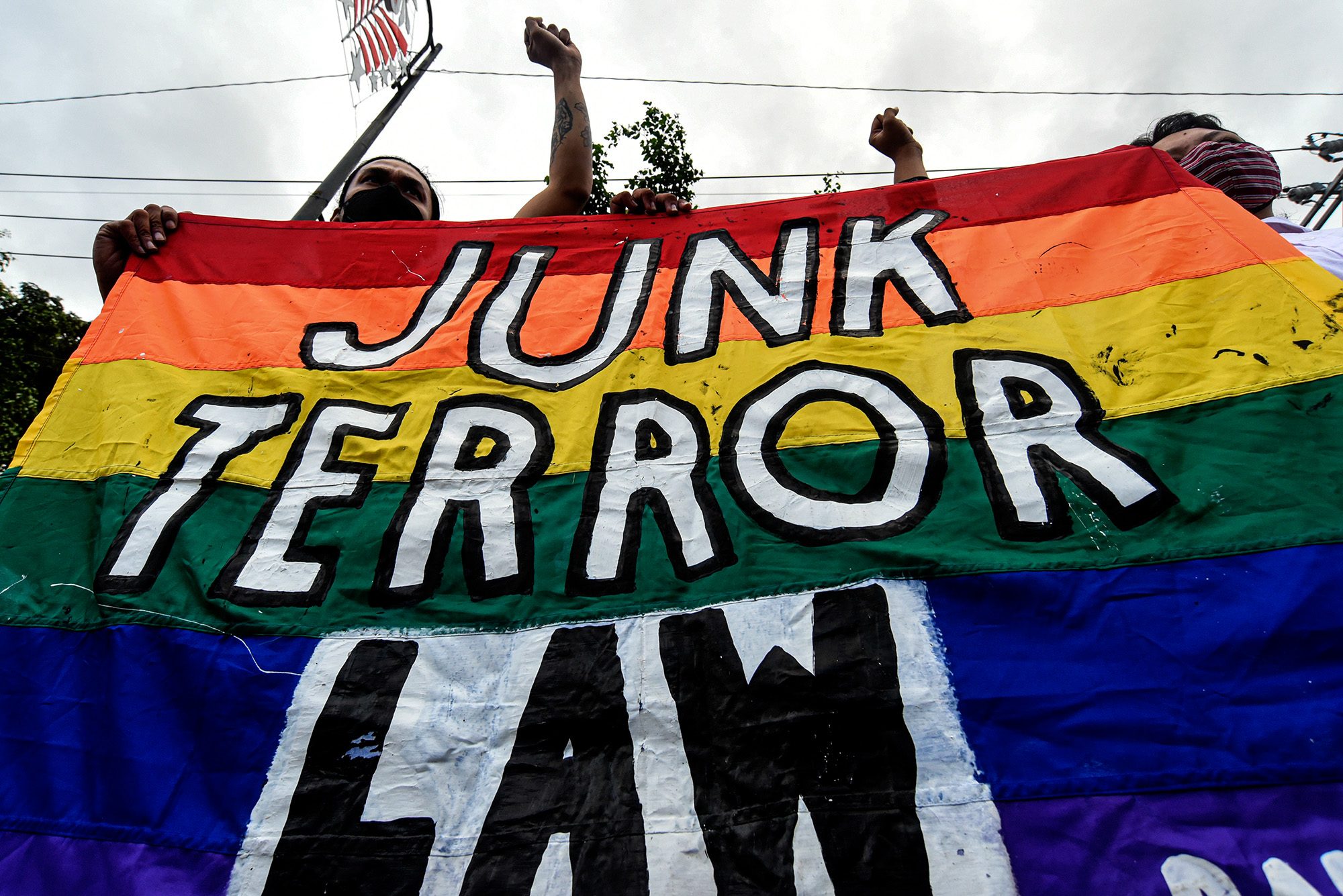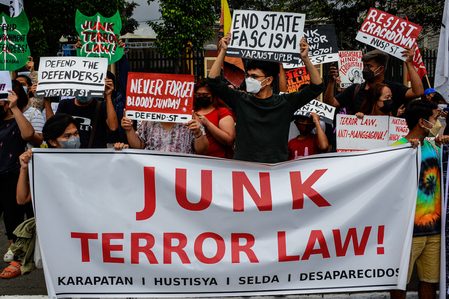SUMMARY
This is AI generated summarization, which may have errors. For context, always refer to the full article.

MANILA, Philippines – The Supreme Court (SC) has declared unconstitutional the so-called killer caveat of the anti-terror law which would have made dissent or protest a crime if it had an intent to cause harm.
The Court voted 12-3 on this issue. They voted Tuesday, but announced it on Thursday, December 9.
Partially granting the petitions, the SC voided the phrase “which are not intended to cause death or serious physical harm to a person, to endanger a person’s life, or to create a serious risk to public safety” in the caveat under Section 4.
“The qualifier to the proviso in Section 4 of R.A. 11479 is declared as unconstitutional for being overbroad and violative of freedom of expression,” said the Supreme Court Public Information Office in an advisory Thursday.
The caveat, found in Section 4e, exempted dissent from the definitions of a terroristic act, but it had a qualifier. It would have exempted dissent only if there’s no intent to cause harm. Petitioners contested this by saying intent is very subjective, and opens a lot of opportunities for law enforcement to abuse their authority.
With that phrase voided, Section 4(e) now says: “Provided, that terrorism as defined in this section shall not include advocacy, protest, dissent, stoppage of work, industrial or mass action, and other similar exercises of civil and political rights.”
Will this protect dissent and political protests?
Former SC spokesperson Ted Te, a counsel and a petitioner in the case, said the declaration of the qualifier as unconstitutional is “nonetheless an important win as it strengthens the protections for civil liberties that the proviso in Section 4 carves out.”
Aside from the caveat, petitioners wanted to strike down the entire Section 4 for what they said were very vague definitions. In petitioning a total striking down of Section 4, they hoped the entire law could be voided for having no definition.
The only other part declared unconstitutional is the power to designate a person or a group as a terrorist based on a request by another country. The more contested mode of designation based only on the anti-terror council’s own determination without having to go to court was retained. The Supreme Court upheld most of the feared law, including the contested provision on 24-day warrantless detention.
A full copy of the decision is yet to be released.

– Rappler.com
Add a comment
How does this make you feel?






There are no comments yet. Add your comment to start the conversation.